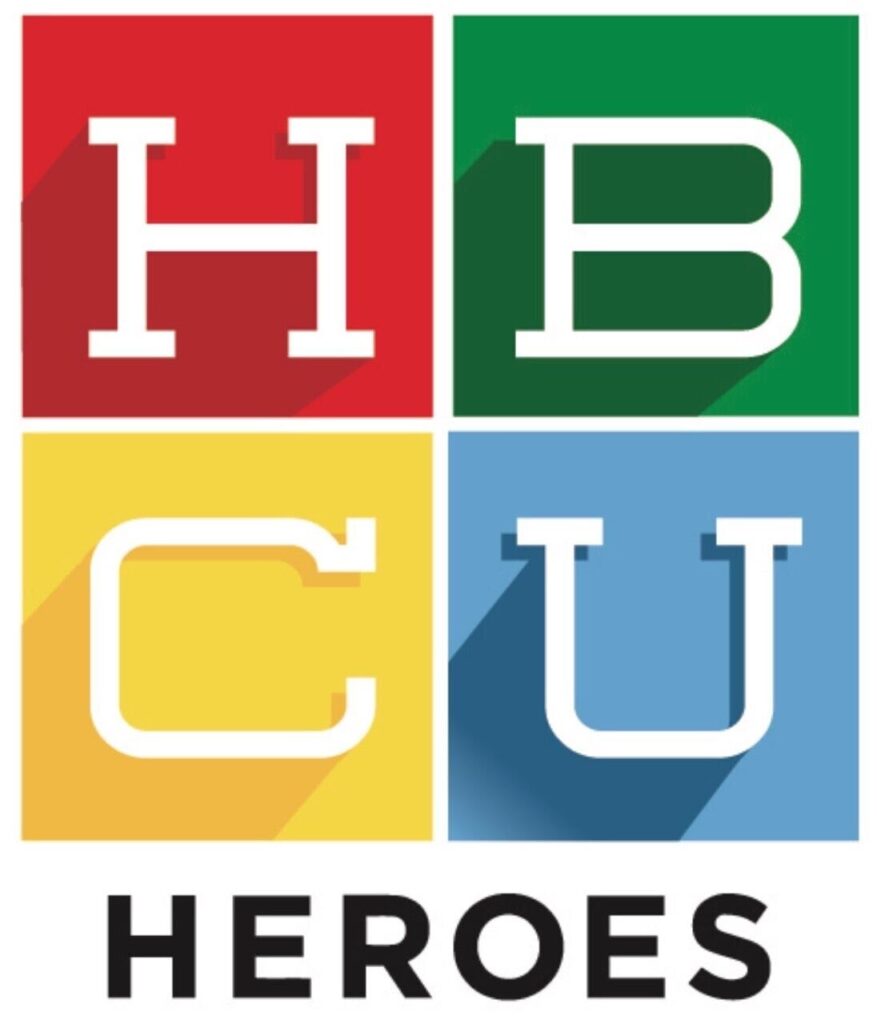How to Land A Job at A Fortune 500 Company as an HBCU Graduate
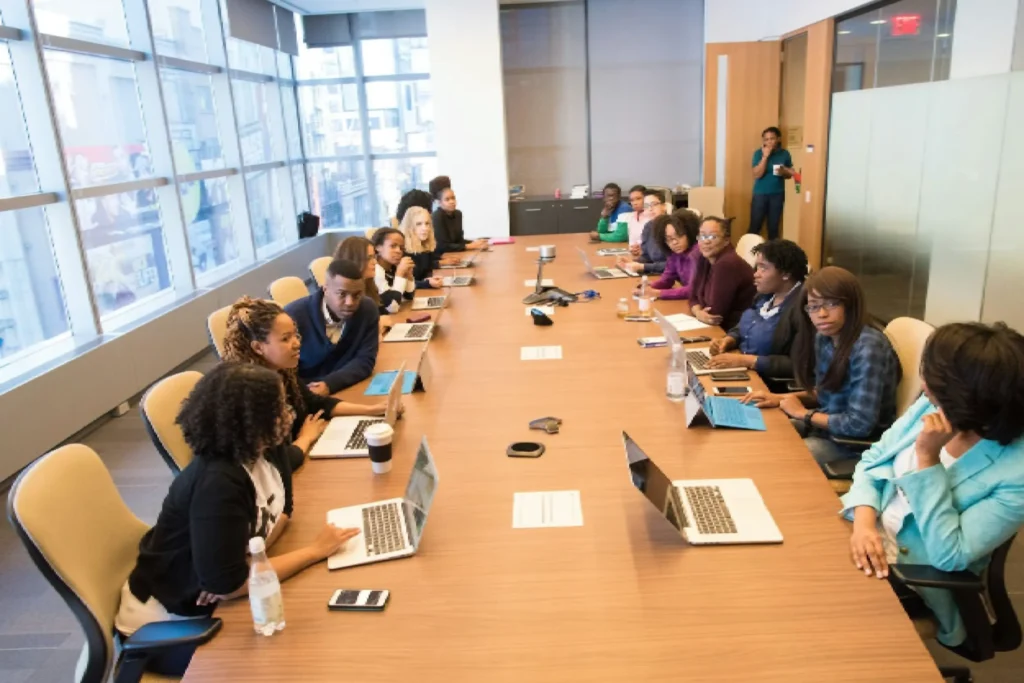
Written By Tracey Pennywell Breaking into a Fortune 500 company is a game-changer for your career—offering competitive salaries, career growth, and access to industry leaders. But for many HBCU graduates, getting a foot in the door can feel like an uphill climb. The key? A strategic approach that leverages networking, a standout resume, and the power of HBCU connections. Here’s a step-by-step guide to help you land that dream role. 1. Build a Strong Professional Network Connections can open doors that resumes alone can’t. Start expanding your network early by: 2. Craft a Standout Resume and LinkedIn Profile Your resume is your first impression. Make it count by: 3. Secure Internships and Real-World Experience Internships aren’t just resume boosters—they’re launchpads for full-time jobs. To get ahead: Explore internships and jobs by visiting this page of our student portal. 4. Prepare for the Interview Process Landing an interview is just the first step—now, you need to impress. 5. Leverage HBCU-Specific Recruiting Programs Many Fortune 500 companies actively seek HBCU talent through targeted initiatives, such as: 6. Follow Up and Stay Persistent Your Fortune 500 Career Starts Now Breaking into a top company as an HBCU graduate isn’t just possible—it’s achievable with the right strategy. Use your network, sharpen your skills, and take advantage of every opportunity. Want insider tips and direct connections to Fortune 500 employers? Sign up for HBCU Heroes’ career webinars and mentorship programs today by visiting https://www.hbcuheroes.org/. Your future starts now—let’s make it happen. 🚀 Tracey Pennywell
Breaking the Myths: Why HBCU Graduates Excel in Competitive Careers

Written By Tracey Pennywell For years, misconceptions about Historically Black Colleges and Universities (HBCUs) have persisted, often overshadowing the reality: HBCU graduates are thriving in today’s workforce. Some believe HBCU degrees hold less weigh than traditional universities, but the truth is that these institutions produce some of the most resilient, innovative, and highly skilled professionals across industries. It’s time to set the record straight. Here’s why HBCU graduates are not just ready for today’s job market—they’re built to lead it. HBCU Graduates: A Competitive Advantage in the Workforce HBCUs have long been a powerhouse for developing top talent, fostering leaders in business, STEM, healthcare, and beyond. Graduates leave with more than just degrees—they bring a unique combination of academic excellence, cultural intelligence, and real-world experience that makes them valuable assets in any workplace. 1. Industry-Ready Skills and Strong Academic Foundations Many assume that HBCU programs lag behind other institutions, but in reality, these schools offer top-tier education with rigorous coursework, cutting-edge research opportunities, and competitive career training. HBCUs consistently produce top talent in high-demand fields, including: 2. Unmatched Resilience and Problem-Solving Skills HBCU students often navigate financial, social, and systemic challenges throughout their academic journeys. For example, reports indicate that over 60% of HBCU students hail from low-income, single female headed households. Additionally, almost 70% of HBCU students receive Pell Grants to help them matriculate through the ever-rising costs of college as opposed to almost 30% of non-HBCU students. But rest assured, while some HBCU students may lack resources, they are rich in promise and resourcefulness. This real-world experience fosters resilience, adaptability, and the ability to overcome obstacles—traits that employers value in fast-paced, high-pressure industries. Employers don’t just need workers; they need professionals who can pivot, problem-solve, and lead through challenges. HBCU graduates bring this mindset naturally. 3. A Unique Perspective That Drives Innovation Companies thrive when they have teams that bring fresh perspectives and diverse problem-solving approaches. HBCU graduates contribute unique cultural and professional insights that allow businesses to: 4. Powerful Alumni Networks and Strong Professional Connections One of the greatest strengths of an HBCU education is the powerful, close-knit alumni network. Graduates often have direct access to influential professionals, corporate partners, and mentorship opportunities that can open doors to top-tier careers. Many Fortune 500 companies actively recruit HBCU graduates, recognizing the untapped potential they bring. Many corporations have also seen great benefits from utilizing HBCU alumni among their employer base and ERGs to help recruit candidates from these talent-rich pools. Leveraging these networks gives HBCU grads an edge in competitive industries. The Bottom Line: HBCU Graduates Are Workforce-Ready The data is clear—HBCUs produce high-performing, career-ready graduates who bring intelligence, resilience, and innovation to the table. The challenge isn’t whether HBCU graduates are qualified; it’s whether companies are fully recognizing their value. For job seekers, the message is simple: Your HBCU education is a strength. Leverage your skills, network intentionally, and step into the career you’ve worked for. For employers, the question isn’t “Should we hire HBCU graduates?” but rather “How can we make sure we’re not missing out on this talent?” To assist, we also suggest utilizing our HBCU Heroes career prep mentorship webinars to connect directly with this highly-employable talent pool. Our webinars: Expand Your Diverse Talent Pool: Connect corporate employee volunteers from your company with students and recent graduates from the 100+ HBCU students nationwide for virtual career prep mentoring. Provide Impact Through Your Corporate Volunteer & ERG Programs: Through our HBCU Heroes webinars, your corporate volunteers and Employee Resource Groups (ERGs) members can serve as skill-based volunteers and in the areas of resume reviews, interview prep, networking and more to help HBCU students on their journeys into corporate America while receiving credit for volunteer hours aligned with your social impact initiatives. Save Time & Money On Recruitment: Our cost-effective webinars help you save thousands of dollars annually on recruiting by providing at your fingertips top-tier, highly employable talent in 90 minute increments in our workshops tailored to fit your needs. Our webinars are year-round, can include employees across your global teams, and incorporate your customized initiates, hiring goals, and even theme days (such as Global Impact Week). Increase Diverse Pipeline Sustainability: Plus, because your HR and hiring managers can interact directly with this early talent pool during our webinars, your reach for game-changing candidates grows even more exponentially. Contact us today for more details or to schedule a virtual meeting for an overview. www.hbcuheroes.org or traceypennywell@hbcuheroes.org. HBCU graduates aren’t just ready for today’s workforce—they’re shaping its future. Tracey Pennywell
Beyond the Résumé: Why Engaging Gen Z Talent Now Requires Relational Recruiting— Not Just Job Postings

Written By Tracey Pennywell I CEO – HBCU Heroes I DEI Strategist I Career Coach I Author In today’s hyper-competitive hiring landscape, traditional recruiting just doesn’t cut it anymore, especially when it comes to engaging Gen Z talent from underrepresented backgrounds. The post-and-pray method? Job boards and career sites? Mass resume screening? They’re not enough. If your company wants to attract and retain high-performing, diverse talent— particularly from HBCUs and first-gen college communities— it’s time to rethink how you recruit. The future of talent engagement isn’t transactional. It’s relational. What’s Not Working Anymore Gen Z is the most diverse generation in U.S. history. They’re digital natives, purpose-driven, and expect authenticity— not algorithms. But here are the problems: So, why are most companies still relying on impersonal job boards and automated hiring platforms to engage them? The result? Missed opportunities, low application rates from diverse candidates, and disconnects between companies and the communities they say they want to reach. Relational Recruiting = Real Connection + Real ROI Relational recruiting is about more than just hiring. It’s about investing in relationships before the job ever opens up. That’s where corporate volunteerism, especially mentorship programs, becomes a game-changer. When your employees volunteer with HBCU Heroes to mentor students, lead resume workshops, or participate in virtual career fairs, they’re doing more than giving back. They’re helping your company: People don’t apply to logos. They apply to relationships. Corporate Volunteerism = The New Recruiter Branding Let’s be clear: volunteerism isn’t just about social impact anymore. It’s a competitive advantage. In fact: When your employees step into mentorship roles— even for just an hour, they become ambassadors of your culture, values, and vision. It humanizes your brand. And Gen Z is paying attention. How HBCU Heroes Makes It Easy for You We know you’re busy. We also know how hard it can be to build authentic relationships with early career talent at scale. That’s where HBCU Heroes steps in. We partner with leading corporations to co-create: We handle the logistics, production, and promotion. You show up, mentor incredible students, and build your future talent pipeline while you’re at it. Ready to Move From Posting to Partnering? If your company is serious about diverse early talent and building a more equitable workforce, now is the time to act. Stop waiting for diverse candidates to come to you. Start showing up where they already are— with purpose, presence, and partnership. Relational recruiting is how you win hearts and hires. And we’re here to help you do just that. Let’s talk! Contact us at traceypennywell@hbcuheroes.org to schedule a 15-minute strategy session and explore how your corporate volunteers can make an immediate impact— all while growing your talent pipeline.
10 Mistakes That Keep Brilliant Black and Brown Grads Broke— and How to Flip the Script

Written By Tracey Pennywell I CEO – HBCU Heroes I DEI Strategist I Career Coach I Author Let’s get real for a second. Black and Brown students are graduating at historic rates, but far too many are walking off that stage straight into underemployment, stagnant wages, and crushing debt. FACT CHECK: According to a 2023 Center for Economic and Policy Research (CEPR) report, Black unemployment rates remain roughly double those of White workers across various groups, including college graduates. Even when employed, Black employees earn almost 25% less per hour than their white counterparts. They also carry more student loan debt. We’re talking about brilliant, capable, and educated folks… still struggling to secure the bag. That’s not a lack of talent. That’s a lack of access, strategy, and wealth-building tools. So, here it is— the tough love list. Below are the 10 common career mistakes keeping Black and Brown Gen Z grads broke— and how to flip each script like a boss. 1) Waiting for “The Dream Job” Instead of Getting in the Game The Mistake: Holding out for a perfect role, and turning down stepping-stone opportunities Flip the Script: Get in the door. Research shows that roughly 70% of young professionals find their ideal jobs by pivoting internally, not by applying externally. Think long-term. Take the internship, the contract, the lesser title; then, dominate and level up. 2) Ignoring Financial Literacy Until It’s a Crisis The Mistake: Living check to check with no plan, and avoiding credit, budgeting, and long-term wealth building Flip the Script: Start now. Only about half of Gen Z believe they’re managing their money well. But those who start investing early, particularly in their 20s, can increase their savings and risk tolerance, allowing for greater wealth accumulation and earlier retirement. Open a Roth Individual Retirement Account (IRA). Set up auto-savings. Use apps like Credit Karma, YNAB, or SoFi. Small moves = long-term freedom. 3) Underestimating the Power of LinkedIn The Mistake: Thinking LinkedIn is for “older” professionals Flip the Script: About 72% of recruiters use LinkedIn when hiring new talent. Your profile is your first impression. Keep it clean, active, and aligned with your personal brand. Post. Comment. Show up. 4) Avoiding Salary Negotiations The Mistake: Accepting the first offer and not negotiating out of fear or guilt Flip the Script: A Harvard study showed that negotiating your first job offer can increase lifetime earnings by over $1 million. Know your worth. Use tools like Glassdoor, Levels.fyi, or AI salary analyzers to get real-time market data. Then ask for more— with receipts. 5) Not Monetizing Skills Outside of the 9 to 5 The Mistake: Relying on one paycheck when you’ve got multiple skillsets Flip the Script: Use your talents. Whether it’s tutoring, designing graphics, strategizing for TikTok, or coding— today’s economy is built for side hustles. Platforms like Fiverr, Upwork, and Skillshare are your playground. 7 in 10 Gen Zs have side hustles, and side hustlers dedicating 12 hours per week to their business earn a median of $1,122 monthly— money that can erase debt or build savings. 6) Ghosting Networking Events and Mentorship Opportunities The Mistake: Assuming talent alone will open doors Flip the Script: 85% of jobs are filled through networking. Show up to panels. Join alumni groups. Message people on LinkedIn with purpose. Ask thoughtful questions. Follow up. Get connected— then, stay connected. 7) Taking Jobs Without Evaluating Benefits & Career Growth The Mistake: Choosing jobs solely based on salary— not total compensation Flip the Script: Ask the right questions: Is there a 401(k) match? Do they offer upskilling? What’s the promotion path? Black employees are promoted at lower rates. So, you have to advocate for your growth early. 8) Staying in Toxic Workplaces Too Long The Mistake: Normalizing burnout, racism, or microaggressions for a paycheck Flip the Script: You can earn money and keep your peace. Start building a transition plan. Document everything. Tap into Employee Resource Groups (ERGs), mentors, or organizations like Black Tech Pipeline, /dev/color, or Latinas in Tech. Your mental health is not negotiable. 9) Failing to Build a Personal Brand The Mistake: Keeping your brilliance a secret. Flip the Script: Today, you are the brand. Share your expertise on LinkedIn or TikTok. Blog your journey. Be known for something. Recruiters look you up on Google before they ever call you. Make sure what they find is powerful and clear. 10) Not Playing the Long Game The Mistake: Living for the weekend, the paycheck, or the next small raise Flip the Script: Wealth is built intentionally. That means budgeting, investing, planning your next five career moves. According to the Brookings Institution, Black families held only 15% of the wealth of white families in 2022— not because of lack of hustle, but lack of access and strategy, and systemic inequity. The new rebellion? Strategy. Final Word Being brilliant isn’t enough. We need tools, strategy, and unapologetic execution. If you’ve made any of these mistakes, you’re not alone. What matters most is how fast you flip the script. Your brilliance deserves more than survival. It deserves legacy. It deserves freedom. It deserves the bag and the boardroom. Let’s change the stats— and rewrite the narrative. Ready to flip the script on your financial future? Connect with us now at HBCU Heroes for exclusive resources, mentorship, and opportunities designed to help Black and Brown grads build wealth, break barriers, and own their success.
From Campus to Corner Office: 7 Career Moves Every 20-Something Should Make Now

Written By Tracey Pennywell I CEO – HBCU Heroes I DEI Strategist I Career Coach I Author So, you’ve got the degree (or you’re on your way), a LinkedIn profile, and maybe even a shiny new job title. But let me let you in on a little secret: those wins are just the start. If your goal is to secure the bag and the seat at the table— we’re talking six-figure salary, impact, and influence, then, you need a game plan. You need not just a job but a strategy. Here are seven career moves every 20-something should be making right now to turn early potential into long-term power moves: 1) Build a Board of You, Inc. You need mentors like corporations need a board of directors. Start curating your “personal board”, composed of people who will hold you accountable, push you, connect you, and vouch for you in rooms you’re not in yet. Pro Tip: Find a mentor in your dream role, one in a totally different industry, and one who tells you the truth even when it stings. 2) Master Your LinkedIn Game Today, Not Tomorrow LinkedIn is no longer optional. It’s your digital résumé, portfolio, and elevator pitch all in one. Don’t just scroll— shine. Share your wins. Post your passions. Comment with insight. Let recruiters know you exist. Add a clean headshot, headline with purpose, and a killer “About” section that says who you are and what you’re ready to do. 3) Don’t Just Network— Net-Worth You know how they say your network is your net worth? That’s real. But here’s the twist: the key is to give more than you take. Comment on someone’s work. Send a “thank you” message. Recommend a resource. Follow up. Relationships are the new résumés. Treat them like currency. 4) Turn Internships Into Income Every internship should come with two exit strategies: a job offer or a powerful reference. Don’t clock in and check out. Treat it like a 90-day audition. Ask for feedback. Take on stretch projects. Show initiative before they ask. Employers remember impact. Make yours undeniable. 5) Learn to Sell Yourself Without Selling Out Whether it’s a job interview, a pitch, or your bio, you’ve got to own your story. Talk about your value with confidence, not apology. Highlight your wins. Own your identity. And never downplay your potential to “fit in”. You belong in every room your ambition walks into. 6) Use AI as Your Assistant, Not Your Replacement AI isn’t the enemy— it’s your new career cheat code. Use AI to revamp your résumé, prep for interviews, or generate a killer cover letter. But don’t let it write your story for you. Tech is powerful. But your voice, your hustle, and your story are irreplaceable. 7) Invest in Yourself Early, Not Just Financially Read books. Take free courses. Hire a coach. Go to networking events. Say yes to growth, even if it’s outside your comfort zone. Every dollar, hour, or connection you invest in yourself will pay dividends. Growth is uncomfortable, but stagnation costs more. Final Word You’re not just looking for a job— you’re building a career, a legacy, and a life that feels aligned, impactful, and financially secure. These seven moves are how you start writing that story today. And if nobody told you this yet: you’re not behind. You’re just getting started, and the corner office isn’t as far away as it seems when you make strategic moves now. Let’s keep the conversation going. Drop your top career move so far in the comments or share this to someone who needs to hear the message!
Never Get Comfortable: How HBCU Grads Can Break the Cycle, Build Wealth, and Boss Up
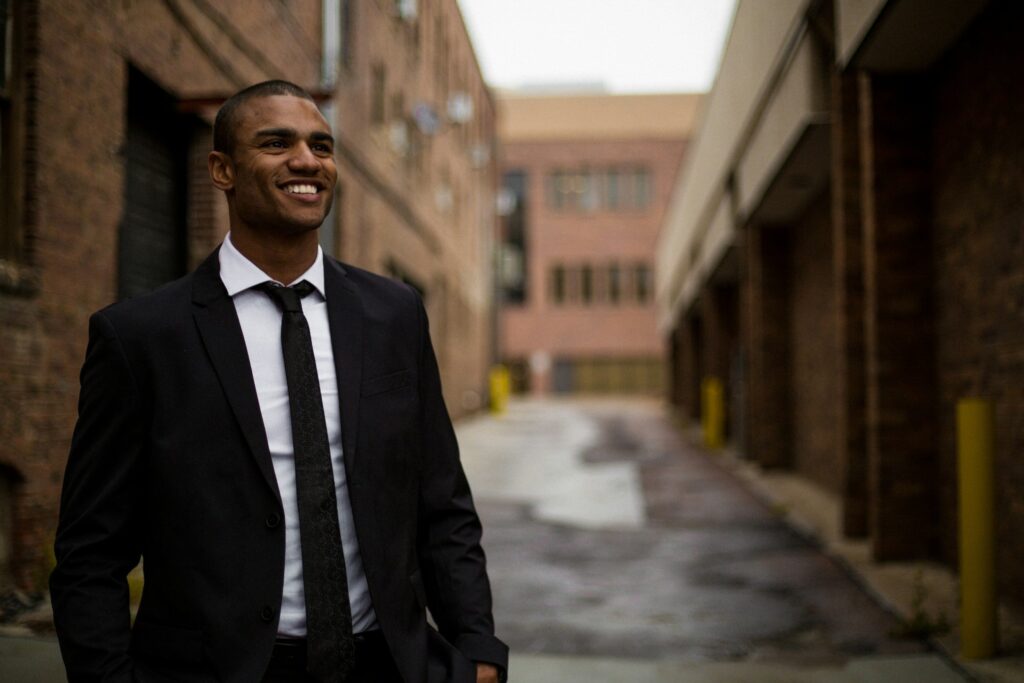
Written By Tracey Pennywell I CEO – HBCU Heroes I DEI Strategist I Career Coach I Author Graduation season is here— so, first of all, congratulations! You just crossed the stage, but let’s be clear: this is the starting line, not the finish. Here’s your post-grad pep talk from someone who’s seen the game from all sides: never get comfortable. Not at your first job. Not at your second. Not even when you get your own office or a fancy title. Comfort is the cousin of complacency, and complacency is the thief of your potential. Let’s Talk Real: The Wealth Gap is Real… and It’s Intentional Black workers in America are often the most overqualified and underpaid in the room. According to the Economic Policy Institute (EPI), Black employees earn almost 25% less per hour than their white counterparts in similar roles. The income gap isn’t by accident— it’s by design. And if you’re not actively plotting your way up, you’re unconsciously settling into the role they’ve budgeted for you. Period. This isn’t about paranoia. It’s about preparation. So, let’s rewrite the narrative. Let’s talk strategy. Pro Tip 1: Be Loyal to Your Purpose, Not Just Your Position That entry-level job might pay your rent, but it can’t pay for your dreams. Use your 9-to-5 to fund your 5-to-9. That means pursuing certifications, side hustles, or starting that business plan you’ve been sitting on. Upskill like your future depends on it— because it does. Consider certifications in AI, data analytics, project management, cloud computing, or digital marketing— all high-demand skills across industries. Platforms like Coursera, Google Career Certificates, and Udemy offer low-cost courses that can lead to five-figure raises. Stat Check: In the IT field, the Global Knowledge 2018 IT Skills and Salary Report discovered that certified professionals in North America earn 22% more than non-certified peers. Pro Tip 2: Stream That Income— Literally One check ain’t enough. Not in this economy. Not in this climate. According to CNBC, the average millionaire has multiple streams of income— typically, seven. You don’t have to get to seven today, but you better not stay at one. Launch a low-overhead business— digital products, freelance services, online coaching, or AI-powered résumé reviews. Create passive income through affiliate marketing and online courses, or by investing in real estate platforms like Fundrise. Diversify your bag— because when one stream dries up, you better have another flowing. Pro Tip 3: Network Like It’s Your Net Worth We say this often, but it’s gospel: your network is your net worth. Every panel you attend, every LinkedIn post you make, every “hey, just checking in” email you send— it’s a deposit into your future success. Start building your personal board of directors, composed of the following, at the very least: Pro Tip 4: Be Strategic, Not Just Smart Talent is great, but it’s strategy that gets you paid. Set your sights on the following: Pro Tip 5: Document Your Wins Like Your Career Depends On It (Because It Does) Keep a “brag book” or digital folder of every major contribution, such as the following: When review season or that next opportunity comes, receipts beat recollections every time. Final Thought: You’re Not Just Working a Job; You’re Building a Legacy The goal isn’t just to get paid. It’s to build generational wealth, shift your family’s trajectory, and turn every opportunity into a stepping stone. Your HBCU prepared you to lead. Now, it’s on you to leverage that degree and make every move count. So, keep showing up. Keep leveling up. And whatever you do, never get comfortable. If you want to level up your résumé or need help mapping out your game plan, reach out to us at HBCU Heroes— your next opportunity could be one click away.
DEI Under Fire: How Corporate Allies Can Stay Committed, Compliant, and Courageous
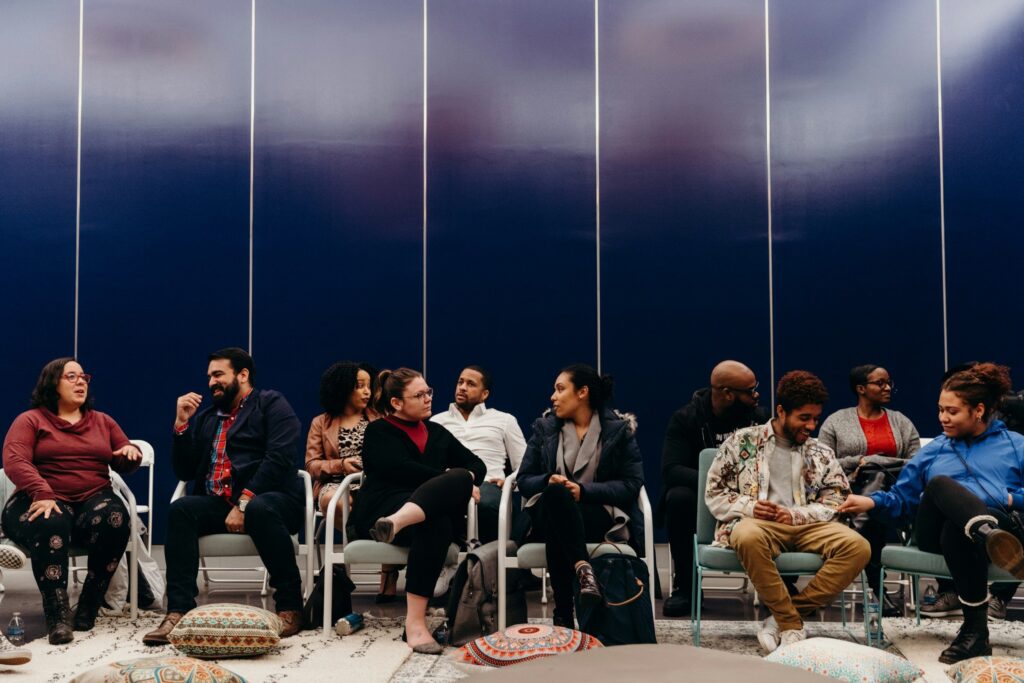
Written By Tracey Pennywell I CEO – HBCU Heroes I DEI Strategist I Career Coach I Author Let’s be honest: Diversity, Equity, and Inclusion (DEI) is in the political hot seat. With the 2025 presidential administration rolling out a wave of executive orders that target DEI in education, corporate America, and nonprofit sectors, many organizations are asking the same question: “Can we still do DEI work… without getting into legal trouble?” Short answer: Yes, if you’re smart, strategic, and unshakable in your values. As a nonprofit on the frontlines of creating economic mobility and generational wealth for Black and underrepresented students, HBCU Heroes is paying close attention. And we’re here to help our partners navigate this moment without backing down from their commitments. Let’s break this down. What’s Actually Happening? The current administration is pushing out executive orders and policies aimed at banning or severely limiting DEI-focused programs. That includes: These measures are designed to chill diversity efforts through fear of litigation, especially after high-profile court cases like the dismantling of affirmative action in college admissions. But here’s what’s key: DEI isn’t illegal. Discrimination is. There’s a legal, ethical, and mission-driven path forward, and smart organizations are choosing it. So What Can Corporate Partners Do Now? Here’s how your company can stay bold, compliant, and on-mission in this climate: 1) Reframe “DEI” Around Universal Access and Opportunity Focus on economic mobility, access to education, and workforce development— goals that benefit everyone. HBCU Heroes, for example, builds inclusive pipelines by preparing students with career-readiness tools— not race-exclusive initiatives. Pro Tip: Ensure your programs are open to all, but still include outreach to communities that have historically been excluded. 2) Lean Into Socioeconomic Equity Many of today’s challenges are rooted in economic barriers, not just racial ones. Corporations can partner with nonprofits that uplift first-gen college students, low-income communities, and underserved schools— just like what we do with our Secure the Bag Tour. Stat Check: According to the United Negro College Fund, Inc. (UNCF), nearly three in four HBCU undergraduate students qualify for Pell Grants. Economic equity = racial equity in practice. 3) Focus on Skills, Not Identity Shift the language from identity-based preferences to skills-based investments, such as upskilling, internships, mentorship, financial literacy, and career prep. Programs from HBCU Heroes are open-access and powered by AI-driven career training, leadership development, and mentorship from corporate volunteers— all focused on creating competent, competitive talent. 4) Document, Don’t Discriminate Make sure your DEI programs are based on clear goals, open criteria, and measurable outcomes. Track how your initiatives are improving recruitment, retention, and revenue— not just representation. Pro Tip: Our nonprofit provides post-event data dashboards that give our partners the metrics that matter, such as how many students they mentored, what majors and schools were represented, and how engagement influenced job pipelines. Why Backing Down Now is a Mistake Let’s not forget: DEI isn’t charity. It’s strategy. Companies with more diverse teams are able to: By choosing to make an impact, your brand benefits from direct connections to a diverse, highly employable talent pipeline. HBCU Heroes: Your Strategic DEI Partner We understand the climate. We also understand compliance. That’s why we’ve evolved our offerings to reflect the moment— legally sound, future-forward, and impact-driven. Our corporate partners can still: We’re not backing down— we’re leveling up. Final Word: Don’t Just “Check the Box”. Protect the Mission. The world is watching how companies respond right now. Are you retreating… or reimagining? Let’s continue building bridges between corporations and future-ready, world-changing talent— all with integrity, innovation, and intention. Partner with HBCU Heroes to minimize risk and maximum return on investment (ROI). Reach out to me at traceypennywell@hbcuheroes.org to schedule a strategy session. Let’s continue to make an impact together— safely and boldly.
Superpower Status: How Being the Only One in the Room Can Make You the One to Watch

Written By Tracey Pennywell I CEO – HBCU Heroes I DEI Strategist I Career Coach I Author Let’s get one thing straight: being “the only one” in the room isn’t a liability. It’s your leverage. If you’ve ever walked into a boardroom, a college classroom, or a corporate Zoom call and felt like you didn’t quite fit the mold— good. You weren’t meant to. The world doesn’t move forward because of people who blend in. It shifts, evolves, and grows because of those who dare to show up differently. Your uniqueness is not a flaw to fix. It’s a superpower to master. Whether you’re a first-generation college student, the only woman in your tech class, the only person of color on your team, or someone who’s always been told you’re “too much” of something— too bold, too quiet, too ambitious, too outspoken, this blog is for you. This is your blueprint for turning difference into dominance. The Superpower Effect: Why Standing Out is Strategic According to a 2018 McKinsey & Company report, companies with the highest levels of ethnic diversity within their executive teams are 33% more likely to achieve superior profitability, significantly outperforming their peers in the bottom quartile. Translation? Diversity isn’t just a buzzword— it’s a bottom-line advantage. But here’s the truth they don’t always tell you: when you’re the first, the only, or the different one, it can feel lonely. That isolation? That awkward silence after you speak up? That isn’t weakness. That’s visibility. That’s impact. In a world that often teaches us to “fit in”, true power comes from those who lean into what sets them apart. Take Tyler Perry. Hollywood never made space for his stories, so he built a studio in Atlanta larger than Disney, Warner Bros., and Paramount combined. His superpower? Creating content rooted in the Black experience— something the industry overlooked. Now, he’s a billionaire because he stayed true to what made him different. Or Issa Rae, who created “Awkward Black Girl” on YouTube when no one in Hollywood would greenlight her vision. That “awkwardness” became her superpower. Today, she’s one of the most influential voices in entertainment. Even Steve Jobs— adopted, college dropout, calligraphy enthusiast— took his love for design and turned Apple into one of the most valuable tech companies in the world. His superpower? Thinking differently. Different isn’t a disadvantage. It’s the birthplace of innovation. You Don’t Have to “Code-Switch” Your Genius Let’s get honest. For Black, Brown, first-gen, and underrepresented students, the pressure to “code-switch” is real. You start to question your natural way of speaking, dressing, or thinking in order to feel accepted in professional spaces. But studies show that authenticity is a leadership trait, not a liability. Harvard Business Review found that leaders who demonstrate authenticity inspire trust, boost team performance, and increase employee engagement. And Gen Z, the generation entering the workforce now, places authenticity and purpose over perks and pay. If you’re not bringing your full self to the table, you’re not bringing your best self. Your background, your upbringing, your cultural capital— it all counts. You grew up solving problems, navigating systems, and showing resilience that can’t be taught in a classroom. That’s emotional intelligence. That’s leadership in disguise. So, stop trying to water down your excellence. Start amplifying it. When You’re the “Only”, You Set the Tone Being the only one isn’t just about survival— it’s about strategy. You now have the opportunity to shift the atmosphere, influence culture, and leave the door open for those coming behind you. Case in point: Rosalind Brewer, former CEO of Walgreens Boots Alliance and one of only two Black women to ever lead a Fortune 500 company, was once the only Black woman in the C-suite at Sam’s Club. Instead of shrinking, she led boldly— championing diversity, equity, and inclusion (DEI), increasing supplier diversity, and mentoring other women and people of color. Or Naomi Osaka, who used her platform as a tennis star to advocate for mental health and racial justice. She didn’t wait for permission. She redefined what strength looks like, and she did it her way. Being the only one doesn’t mean you don’t belong. It means you’re paving the path. Own the Room: Turning Difference Into Power If you’re wondering how to actually turn your uniqueness into a professional asset, here’s the game plan: 1) Audit Your Advantage What are you bringing to the table that others aren’t? Maybe it’s your lived experience, your bilingual skills, your non-traditional major, your side hustle, or your community organizing background. These aren’t extras. They’re differentiators. Write down five things that make your perspective valuable and practice saying them with confidence in interviews, networking, and resumes. 2) Tell Your Story Loud Storytelling is a power tool. Learn how to share your “why” in a way that connects. Use the STAR (Situation, Task, Action, Result) method to practice telling your story during interviews and career conversations. This makes you memorable— and marketable. 3) Find Your Tribe, But Don’t Hide Yes, community is crucial. But don’t use it as a crutch. Surround yourself with mentors and peers who celebrate— not tolerate— your uniqueness. But also push yourself to enter rooms that stretch you. Comfort doesn’t equal growth. 4) Master the Room, Then Build Your Own If you don’t see a space where you belong— create it. Start the organization. Pitch the panel. Launch the project. Remember: every thriving movement started with someone who dared to start small and think big. 5) Invest in What Makes You Better Upskilling is real power. Whether it’s earning a certification in AI, improving your financial literacy, or strengthening your public speaking— bet on yourself. The World Economic Forum (WEF) found that nearly 60% of the world’s workforce would require training by 2030, emphasizing the importance of upskilling. Those who embrace lifelong learning will lead. Your uniqueness, combined with new skills, will make you unstoppable. This is Legacy Work Let’s be clear. You’re not just building a career. You’re building a legacy. When
The Billion-Dollar ROI of Doing Good: Why Corporate Volunteerism is a Smart Business Strategy

Written By Tracey Pennywell I CEO – HBCU Heroes I DEI Strategist I Career Coach I Author Let’s be honest— corporate America is at a crossroads. The workforce is evolving, Gen Z is rewriting the rules, and Corporate Social Responsibility (CSR) leaders are under pressure to prove that doing good does more than just feel good— it has to perform. Here’s the truth: it does. In fact, the return on investment (ROI) of skilled volunteerism, mentorship, and purpose-driven partnerships isn’t just measurable— it’s massive. And if you’re a company that still thinks volunteerism is just about T-shirts and food drives, let me invite you to think bigger— because when done right, corporate volunteerism is more than a charitable checkbox. It’s your recruitment pipeline. Your leadership development program. Your diversity, equity, and inclusion (DEI) engine. And your brand builder— all in one. Let’s break down exactly why companies investing in mentorship and skills-based volunteering are not only transforming communities, but outperforming the market. The Volunteerism Shift: From Altruism to Strategy For decades, companies treated volunteerism as a side activity— nice to have, but not core to the business. That mindset is outdated. Today, skills-based corporate volunteerism is a multibillion-dollar asset that’s driving engagement, retention, brand loyalty, and long-term talent development. And the data backs it up. In 2010, volunteers nationwide served about 8 billion hours, translating to $8 billion in economic value if the value of an hour of volunteer time is approximated at $1. Yet, only about 16% of all companies are fully leveraging it. Deloitte found that companies with highly engaged employees outperform their peers by 147% in earnings per share. Volunteerism is a proven engagement tool. According to a Benevity Impact Labs Report, companies with robust volunteering programs see 57% less turnover among participating employees, which means better talent retention and reduced recruitment costs. That’s not philanthropy. That’s profit. What the Workforce Wants: Purpose, People, and Proof Let’s talk about talent. The future of your company depends on attracting and retaining high-potential employees and Gen Z is rewriting the playbook. This generation isn’t just looking for perks. They’re looking for purpose. Stat Check: Now, layer on the pressure for companies to meet DEI hiring goals, strengthen employer brand, and improve Environmental, Social, and Governance (ESG) performance, and it becomes crystal clear: Volunteerism isn’t a distraction from business. It is the business. Enter HBCU Heroes: Turning Volunteerism Into Measurable Workforce ROI At HBCU Heroes, we’re not here for performative partnerships. We build high-impact, high-visibility volunteerism pipelines that: Since 2018, we’ve connected with over 200,000 HBCU students and recent grads to support their early career goals by providing resources, scholarships, and guidance, along with networking and mentorship with professionals from leading companies like Amazon, Comcast, Twilio, Verizon, IBM, Danaher and more, through: Each session isn’t just a one-off event— it’s a strategic activation that meets CSR, human resources (HR), and DEI teams exactly where they’re trying to go: impact with measurable outcomes. Corporate Volunteerism as a DEI Accelerator Here are stats that should shake every HR exec out of autopilot: We won’t close that leadership gap without intentionality. Mentorship matters. Access matters. When corporate employees volunteer as mentors through HBCU Heroes, they’re not just “giving back”. They’re opening doors, transferring social capital, and creating pathways for HBCU students who may have the talent but not the insider access. This is legacy work. And the companies that lean in are rewriting what equitable recruitment looks like. Why Virtual Mentorship Works— and Scales Let’s be real: in-person mentorship is beautiful, but it’s not always scalable. Travel, scheduling, funding, and logistics create friction. Enter virtual mentorship, which: With platforms like Zoom and Microsoft Teams, we make it seamless for your teams to volunteer, lead, and inspire— from anywhere. And in a hybrid world, that matters. Metrics That Matter: How We Help You Track ROI Too often, volunteerism fails to get buy-in because leaders can’t measure its impact. Not on our watch. HBCU Heroes provides every partner with: We help you turn good deeds into business intelligence— and boardroom-ready results. The Business Case for Investing in HBCU Talent Let’s talk numbers: Yet, too many companies are still under-leveraging this powerhouse talent pool. HBCU Heroes helps you bridge that gap. We don’t just bring résumés— we bring readiness, relationships, and ROI. What’s in It for You: Corporate Benefits Breakdown When companies partner with HBCU Heroes, here’s what they get in return: Brand Equity Your logo doesn’t just show up. It gets seen by thousands of engaged students, alumni, and communities of color nationwide. Leadership Development Mentorship hones empathy, communication, and cultural competency in your emerging leaders. Talent Visibility With HBCU Heroes, you can access to pre-vetted, motivated talent for internships, entry-level roles, and pipeline programs. Content & PR We create recap decks, social media posts, and spotlight content to amplify your brand’s investment. Employee Retention Volunteering boosts morale. Teams feel proud to work for a company that walks the talk. Tax and ESG Alignment Many companies can leverage matching gift programs, CSR budgets, and ESG reporting to fund these programs, turning volunteer hours into real value. Where We Go from Here: Partnership Opportunities Monthly Virtual Mentorship Days Sponsor and staff one of our signature events featuring breakout rooms, opportunities for your employees to participate in keynote panels, résumé reviews, mock interviews, and more. Corporate Cohorts Launch a branded volunteer program for 25 to 100 employees. We’ll manage scheduling, engagement, and reporting. Scholarship + Résumé Platform Sponsorship Fund résumé-building tools and digital portfolios for students to prepare for competitive careers. Secure the Bag Tour Sponsorship Be front and center on our national campus tour, connecting directly with Gen Z changemakers on HBCU campuses. Signature Impact Report Receive a custom year-end recap showing your team’s reach, ROI, and results. Final Word: This is Not Charity— It’s Smart Business Here’s the mic drop: doing good isn’t a cost center. It’s a growth engine. Volunteerism is no longer a side project. It’s a core business strategy that: With HBCU Heroes,
Breaking the Glass Wall: Why Diverse Talent Is Still Locked Out— and What We’re Doing About It
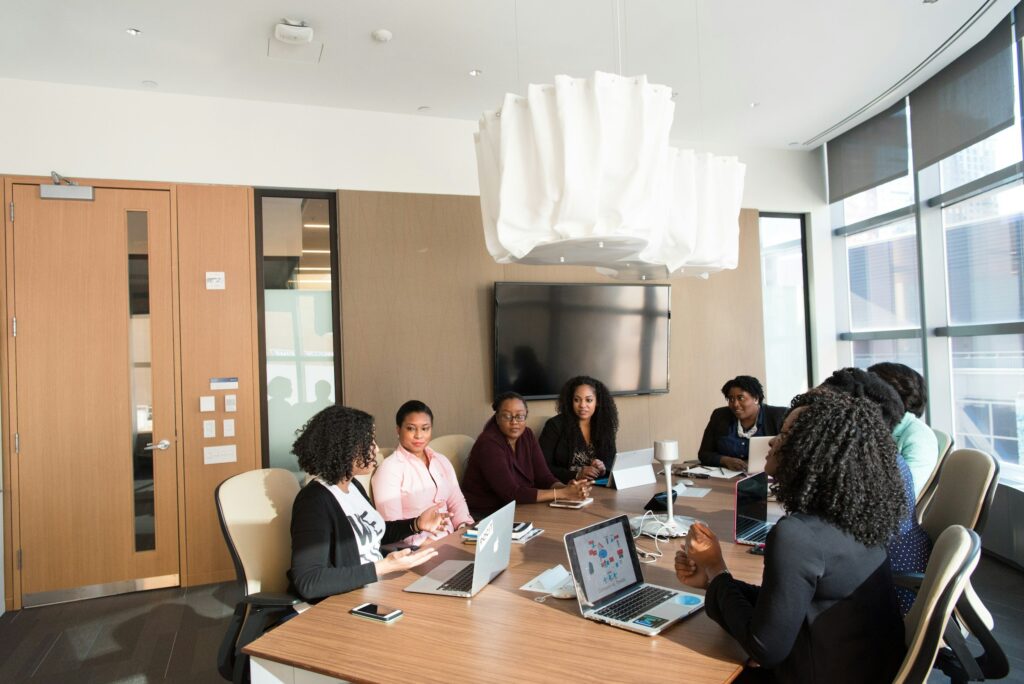
Written By Tracey Pennywell I CEO – HBCU Heroes I DEI Strategist I Career Coach I Author Ever feel like you’re doing everything right, and still coming up short? You’ve got the degree. The internship. The polished résumé. Maybe even a mentor in your corner. And still, you’re hitting nothing but silence. This, right here, is what I call the Glass Wall, an invisible barrier that blocks brilliant, diverse professionals from accessing the opportunities they’ve worked so hard to earn. You can see the job. You’re qualified for the job. But you can’t quite touch it— not because you’re unprepared, but because the system was never really built with you in mind. Welcome to job hunting in 2025. Let’s Be Clear: The Talent is There If I had a dollar for every time a recruiter said, “We just can’t find diverse candidates,” I’d have enough to fund full-ride scholarships for thousands of students. The problem isn’t the pipeline. It’s the access points. It’s the bias in algorithms, the referrals that stay in closed circles, the interviews that never get scheduled, and the networks that are not inclusive. 3 in 4 job seekers never hear back from recruiters after submitting an application, and that percentage is even higher for applicants with non-white sounding names… unfortunately, you know the ones. According to a 2021 McKinsey report, Black employees only account for 12% of the private-sector workforce in the U.S. Across senior roles, Black representation is only at around 4% to 5%. The glass wall isn’t a metaphor. It’s a market reality. And for too many of us, it’s reinforced daily— one ignored email, one closed-door meeting, one ghosted follow-up at a time. The Emotional Cost of Being Overlooked When silence becomes your norm, it doesn’t just block opportunity. It chips away at your self-worth. You start to shrink your vision. You accept less. You begin to believe maybe this is just how it is. Let me say this with love and clarity: You are not the problem. The system is. A 2024 Coqual report revealed that 40% of Hispanic and Latino or Latina employees felt they needed to change aspects of themselves to succeed at work. That’s not inclusion. That’s survival. And I don’t want you surviving. I want you thriving. We’re Not Waiting on an Invite— We’re Building Our Own Doors At HBCU Heroes, we’re smashing the Glass Wall with one powerful tool: relational access. We don’t just post jobs. We create human connection. We don’t just offer generic advice. We deliver mentorship, sponsorship, and real talk from executives who look like us and root for us. We don’t just tell students and recent grads to “work harder”. We help them work smarter, with AI-driven résumé tips, mock interviews with corporate volunteers, and direct introductions to hiring managers who are ready to show up differently. Because guess what? Relational recruiting works. Research suggests that as much as 80% of jobs are filled through networking. That’s the hidden job market— and we’re opening the door wide. For Companies Asking, “How Do We Diversify?”— Here’s Your Blueprint If you’re a corporate leader, here’s what I want you to understand: Talent is not the issue. Access, connection, and equity of opportunity are. So, ask yourself, “What are we doing to show up differently?” If your only diversity strategy is a job posting on your website, you’re not in the game. You’re on the sidelines. Here’s what real inclusion looks like: A Benevity Impact Labs Report discovered that companies with robust volunteering programs saw 57% less turnover. Meanwhile, over 8 in 10 employees feel stronger connections at their companies when engaged in mentoring programs. Translation? Doing good is also good business. Your Future Self is Counting on You To every early-career professional, recent grad, or job seeker reading this: don’t let the silence define you. Keep showing up. Keep building your skill set. Keep networking. Keep applying. But most importantly, keep believing in your value— even when the system tries to dim your light. Here are three pro tips to push through the Glass Wall: And to every corporate decision-maker reading this: Be the ladder. Sometimes, one “yes”— one follow-up, one referral, one coffee chat— can change the entire trajectory of someone’s career. You don’t need a diversity, equity, and inclusion (DEI) title to do this work. You just need to care enough to act. Final Word: The Wall Isn’t Glass Because It’s Fragile— It’s Glass Because It’s Invisible That’s the danger. That’s the challenge. But that’s also the opportunity. Because when we name it, we can change it. And we’re doing just that— one student, one mentor, and one moment at a time. Together, let’s tear down the wall. To early-career professionals and job seekers, don’t let invisible barriers hold you back from the career you deserve. Sign up for our HBCU Heroes webinars and exclusive student programs today to connect with mentors, gain insider career tips, and access real opportunities from leaders who look like you and root for you. If your company wants to help break the Glass Wall, partner with us at HBCU Heroes. Mentor students. Sponsor a career prep webinar. Hire a future CEO. This is legacy work. And your next step could change everything. Send me a message at traceypennywell@hbcuheroes.org to schedule a quick strategy session!
